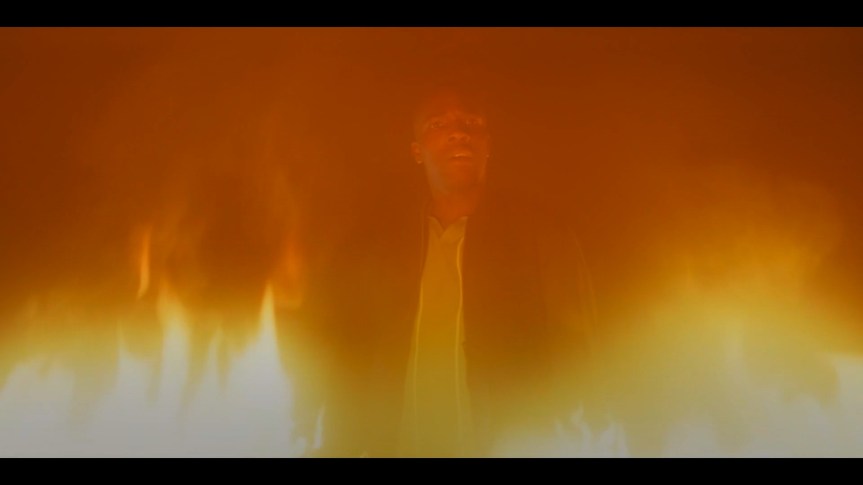War makes people into puppets. Figures whose worth is in the space they take up, the orders they follow, interchangeably. They are a resource spent as simple flesh; the damage to their unique lives and minds is just an inefficient transfer of energy in the relocation of the flesh marionettes.
One of the biggest obstacles to this profligate handling of life is that mending people after they’re damaged, a delicate but necessary process, costs so much labour time. A solution is speculated at in Doctor Who’s The Empty Child (2005), wherein the Doctor encounters nanogenes – floating swarms of imperceptibly tiny robots, designed to identify and patch up injuries. The story’s climax reveals that a crashed warship from an alien world has leaked its own variant of nanogene, a type specifically for use in a battlefield ambulance; mending soldiers in an instant so that they might go straight back to war. Rapid, airborne transmission of the genes enables such a war to be fought on an inconceivable scale. Thus a facility that nominally exists to save lives, even care for them, is in practice one that cheapens life by cheapening the act of repair: matters of life and death ascribed to an inanimate, autonomous computer programme, left to its own devices.
Unfolding across the story is the horror of what happens when that technology fails to self-correct. It contains a template of the alien warrior it’s meant to rebuild, but knows nothing of mankind. It assumes its own crude programming will apply to everyone. Diligently following their own logic to its conclusion and then repeating, the nanogenes begin editing human beings into illogical abominations. They’re unaware of the harm they wreak; they’re physically incapable of independent interpretation, imagination, or evaluation, because their ignorant data set is their entire existence. As a result, the human victims of this ‘treatment’ undergo a reduction of everything they are. Because they did not factor in the creation of this data, but are nonetheless abandoned to its system, they are rendered subhuman – ’empty’. Continue reading “The Children of Fenric”


